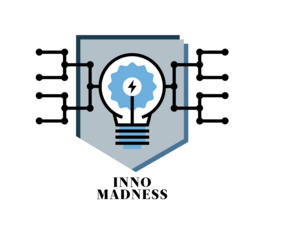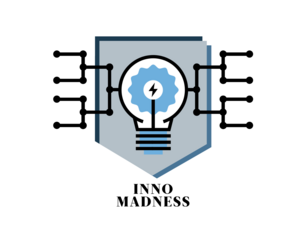The inaugural Maryland Inno Madness competition is complete and Baltimore startup Rose Health has emerged as the winner.
The mental health technology company competed against seven other local startups over three rounds to secure its victory in the friendly, bracket-style contest that launched on March 1.
In the final round, Rose Health won over Fulton-based cloud management company, Kion, with 60.4% of the vote. Rose Health picked up 721 votes to Kion's 472 during the third public voting round that ran from March 15 to 21.
The CEOs of both companies said in interviews Tuesday that the competition was a fun and encouraging way to connect with Greater Baltimore startups and see what's happening across the local tech ecosystem.
"It's unbelievable to see all the support Baltimore is able to give us," said Kavi Misri, CEO of Rose Health.
For Rose Health, the win comes as the company is kicking off a $7.5 million Series A round. The firm has raised about $2.8 million to date after closing a $1.75 million seed round in October 2020.
Most of that first round of funding has been spent on building out the "deep tech and deep science" approach to Rose Health's product, Misri said. He expects the company will spend about 60% of the Series A round on commercializing and building out sales of their app that helps monitor patients' mental health.
The app uses patented artificial intelligence and language processing tech to assess a patient's mood and identify early warning signs of depression and mood disorders. Mental health providers can track patients' well-being and if activity on the app shows any warning markers for new or worsening anxiety and depression, providers are alerted so they can appropriately intervene. The company also recently added a small in-house counseling team to oversee the platform dashboard and step in with short-term care until a patient can be connected with a care provider.
Rose Health's tech is now in 35 physician groups, Misri said, and the company has also launched a new concierge employer benefit program through which large employers can offer the service to their employees. Additionally, a pilot program focused on building a platform to serve children and adolescents is expected to begin later this year with Utah-based Intermountain Healthcare.
For its Series A round, Misri said the company is focused on finding strategic investors who can make connections to potential clients, as well as provide guidance.

Already the company has five soft commitments from interested investors and a few lined up for Rose Health to select as the lead investor, or two co-leads. Misri said he's particularly interested in working with venture capital firms that also have health systems among their limited partners, meaning the investors in their fund.
As Rose Health continues to grow, winning awards and competitions such as Inno Madness have been a "validation of our thesis," Misri said.
"Rose Health was built with the intention of really changing the way that mental health care is delivered and perceived, and that's really our driving force of how we go about building Rose," he said.
The bracket also shows the growth and success of local startups in the area, said Brian Price, CEO of Inno Madness runner-up Kion. He said it's encouraging to see a spotlight on the innovation taking place in Greater Baltimore and outside of traditional tech hubs such as Silicon Valley, Austin, Texas and Boston.
Kion has experienced growth of its own over the past year. The company, formerly CloudTamer.io, rebranded last fall shortly after raising $10 million in Series A funding.
Price said they've already put some of those funds to use by hiring a new senior vice president of sales who is focused on capturing more of the commercial market, specifically in higher education, health care and some software firms. Most of the company's customers are federal government agencies. Kion helps its customers with business management and reducing costs as they move operations to cloud computing services.
"We had a great end of 2021 and this year is poised to be a huge growth year as well," Price said, promising more announcements to come soon.
About Inno Madness
Inno Madness is our friendly, bracket-style challenge where readers vote to advance companies based on one question: Who would you invest in?
The bracket was assembled after sourcing reader nominations, as well as editorial input from the Maryland Inno team. Seeding was loosely determined by fundraising so that bootstrapped companies, as well as startups with similar totals, were paired together.
The goal of Inno Madness is to give a snapshot of some of the most promising tech companies in Maryland. It is by no means a complete list of Maryland's best startups, which is a testament to the size of the region's tech scene. It's also not just a list of the eight most-funded startups in the region. Instead, the bracket is meant to represent the full breadth and diversity of the ecosystem.








